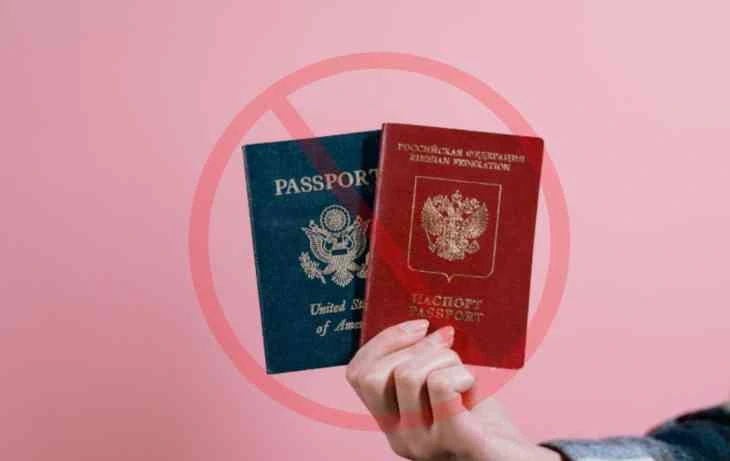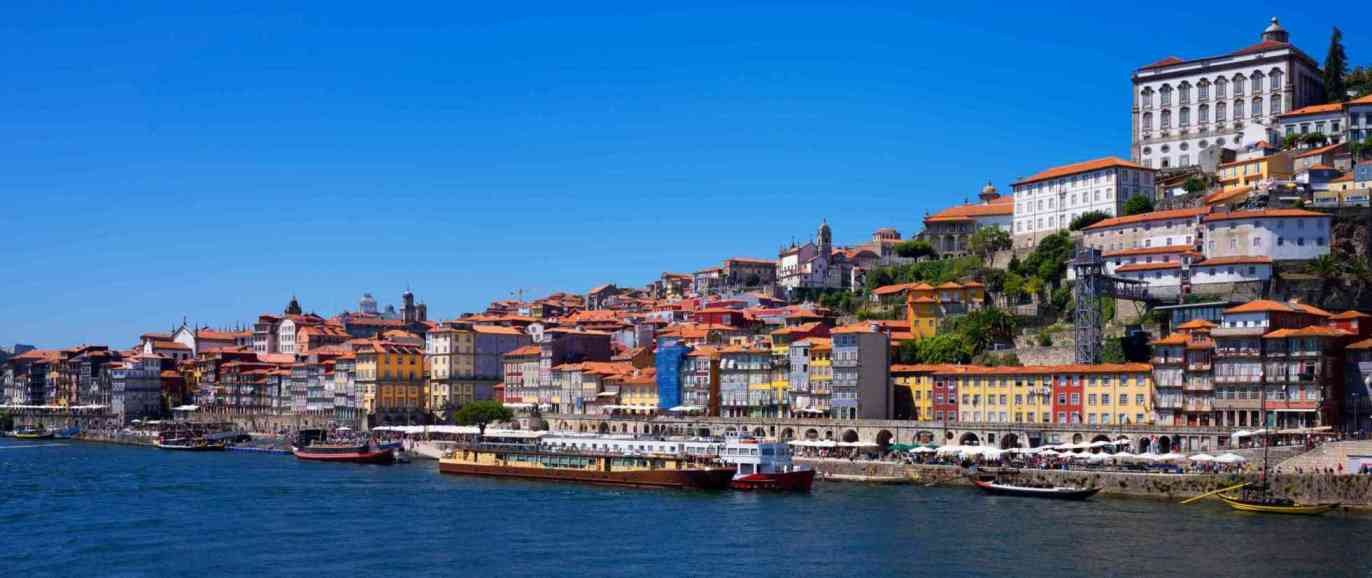How to Get Portuguese Citizenship in 2025: Requirements, Process & Dual Citizenship
- Ahmed hamdy Ahmed hamdy
- 0 Comments
Portuguese citizenship opens the door to life as a full European Union citizen. It grants you the right to live, work, study, and travel freely across 27 EU countries, along with visa-free access to more than 170 destinations worldwide.
Obtaining Portugal residency by investment — through programs such as the Golden Visa — is often the first step toward citizenship. After maintaining your investment and meeting the minimum stay requirement for five years, you can apply for Portuguese citizenship and enjoy the full benefits of being an EU citizen.
In this comprehensive guide, you’ll learn how to get Portuguese citizenship, the different pathways available, the exact requirements you’ll need to meet, and a step-by-step breakdown of the application process. Whether you’re pursuing citizenship through descent, marriage, naturalization, or investment, this guide will help you navigate the journey with confidence.
Quick Tip: Portuguese citizenship also allows for dual nationality, so you won’t necessarily need to give up your current citizenship. To better understand dual nationality rules worldwide,

This Guide is for a wide range of readers, including:
- Non-EU residents seeking naturalization through visas such as D7, work, or study visas.
- Individuals with Portuguese ancestry, including parents or grandparents.
- Spouses or partners of Portuguese nationals.
- Investors pursuing citizenship via the Golden Visa program.
- People from former Portuguese territories who may have special eligibility pathways.
Why Portuguese Citizenship Is Highly Sought After?
Obtaining Portuguese nationality comes with a range of life-changing benefits:
- Visa-Free Travel:
Portuguese passport holders can travel to 172 countries, including the EU, UK, USA (with ESTA), and Canada (with eTA). - Right to Work & Live in the EU:
You can live and work in any EU or EEA country without needing additional visas or permits. - Access to Education and Healthcare:
As a citizen, you’re entitled to free or low-cost healthcare and education within Portugal and the EU. - Family Security:
Citizenship can be passed down to your children, ensuring long-term stability for future generations. - Investment Opportunities:
Ideal for investors looking for citizenship or residency by investment in Portugal.
Overview of Portuguese Citizenship Pathways
There are multiple ways to become a Portuguese citizen, each with unique requirements and benefits. Below is an overview of the main routes:
| Pathway | Requirement | Key Highlights | Processing Time |
| Citizenship by Naturalization | 5 years legal residency (may rise to 10 years under proposed law) | Standard route for most non-EU citizens | 1–2 years after residency |
| Citizenship by Descent | None (proof of parent or grandparent citizenship required) | Fastest option if you have Portuguese lineage | 6–18 months |
| Citizenship by Marriage or Civil Union | 3 years of marriage/union with a Portuguese citizen | No residency needed if marriage requirements met | 1–2 years |
| Portugal Residency by Investment | Maintain investment & stay 7 days/year for 5 years | No need to live full-time in Portugal | 6+ years |
| Sephardic Jewish Descent | Proof of ancestry, no residency needed | Special route for descendants of expelled Sephardic Jews | 1–2 years |
| Former Colonies Pathway | Varies by country & situation | Applies to people from countries once under Portuguese rule | Varies |
1) Citizenship by Naturalization Route
This is the most common pathway for non-EU nationals.
Key points:
- Requirement: 5 years of legal residence (expected to increase to 10 years under new law proposals).
- Eligible visa types: Work visas, D7 passive income visa, study visa, or Portugal Golden Visa.
- Must pass the A2-level Portuguese language test.
- Clean criminal record required.
2) Citizenship by Descent or Birth
Portuguese nationality can be passed down through family ties, making this the fastest and most cost-effective route.
Who qualifies:
- A child born to at least one Portuguese parent, even if born abroad.
- A grandchild of a Portuguese citizen (must prove connection to Portugal, such as language, visits, or community ties).
3) Citizenship by Marriage or Civil Union
Foreigners married to or in a stable relationship with a Portuguese citizen can apply for citizenship after 3 years of marriage/union.
- The marriage must be registered in Portugal.
- Proof of relationship and integration into the Portuguese community is required.
- Language requirements may be waived for marriages over 5 years.
4) Sephardic Jewish Ancestry
If you are a descendant of Sephardic Jews expelled from Portugal in the 15th century, you may qualify under a special citizenship program.
- Requires genealogical proof and a certificate from the Portuguese Jewish community.
- May also require proof of connection to Portugal through property, visits, or business.
5) Golden Visa Route (Investment-Based)
The Golden Visa program provides residency through investment, eventually leading to citizenship.
Current minimum investment options (2025):
- €500,000 – investment in qualified funds.
- €250,000 – cultural heritage donation (reduced to €200,000 in low-density areas).
- €500,000 – scientific research contribution.
- Creation of 10 jobs in Portugal.
Eligibility & Requirements for Each Portuguese Citizenship Pathway
Each pathway to Portuguese citizenship comes with its own rules, timeline, and documentation requirements. Understanding these in detail will help you determine which route best fits your situation.
Requirements for Naturalization
Naturalization is the most common route for non-EU citizens who live in Portugal long-term. Below are the updated requirements as of 2025.
| Requirement | Details |
| Residency Duration | Minimum 5 years of legal residence (proposed to increase to 10 years under new law). |
| Qualifying Residence Permits | D7 Visa, work visa, student visa, or Golden Visa. |
| Language Proficiency | Pass the A2-level CIPLE Portuguese language test. |
| Criminal Record | Clean record, with no conviction carrying a sentence of 3+ years under Portuguese law. |
| Integration Proof | Evidence of integration into Portuguese society (employment, taxes, housing, or community ties). |
| Application Fee | €250 (excluding translation and legal costs). |
Residency Requirements Explained
- You must hold a valid residence permit during the entire period.
- Time starts counting from the date you apply for the residence permit, thanks to a 2024 law update.
- Temporary absences are allowed but should not exceed six consecutive months or eight months total per year.
Related guide: Easiest Country to Get Permanent Residency in Europe
Portuguese Language Requirement (CIPLE Exam)
Applicants must prove basic proficiency in Portuguese.
- Minimum level: A2 (basic user).
- The CIPLE exam tests speaking, reading, writing, and listening.
- Exemptions:
- Applicants over 65 years old may be exempt.
- Children educated in Portuguese schools do not need to take the exam.
Preparation Tip: Start learning Portuguese early. There are many online courses, and test centers are located worldwide.
Requirements for Citizenship by Descent or Birth
Citizenship by descent is the fastest route and does not require residency in Portugal.
Who Qualifies
- Children of Portuguese citizens:
- At least one parent was Portuguese at the time of the child’s birth.
- Applies even if the child was born abroad.
- Grandchildren of Portuguese citizens:
- A grandparent must not have lost Portuguese nationality.
- The applicant must prove a connection to Portugal, such as:
- Knowledge of the Portuguese language
- Proof of visits to Portugal
- Property ownership
- Membership in Portuguese community associations
Documents Required
- Applicant’s long-form birth certificate.
- Parents’ or grandparents’ birth certificate proving Portuguese citizenship.
- Marriage certificates, if applicable.
- Criminal record certificates from all countries lived in since age 16.
- Proof of Portuguese language proficiency (for grandchildren).
Citizenship by Marriage or Civil Union
Foreign spouses or partners can apply for Portuguese citizenship after being in a marriage or de facto union with a Portuguese citizen for at least three years.
| Requirement | Details |
| Marriage Duration | Minimum 3 years, registered in Portugal. |
| Residency Requirement | Not mandatory if marriage conditions are met. |
| Language Test | Required unless married for over 5 years. |
| Proof of Relationship | Joint property, shared bills, tax returns, photos, etc. |
| Community Connection | Evidence such as participation in Portuguese cultural associations or frequent visits. |
| Application Fee | €250 |
Processing Time: Typically 12–24 months, depending on documentation completeness and backlog.
Sephardic Jewish Ancestry
Portugal offers citizenship to descendants of Sephardic Jews expelled during the 15th century.
Eligibility
- Must provide genealogical evidence linking your family to Sephardic Jews of Portuguese origin.
- Certificate issued by the Portuguese Jewish Community confirming lineage.
- No residency required, but applicants must demonstrate a connection to Portugal.
Required Documents
- Genealogical family tree with notarized evidence.
- Proof of Portuguese language or cultural connection.
- Criminal record certificates.
Note: The government has discussed tightening rules for Sephardic citizenship due to rising application numbers. Always check for updates before applying.
Golden Visa Route: Portugal Residency by Investment
The Portugal residency by investment is a pathway for high-net-worth individuals to gain residency through investment, later leading to citizenship.
Minimum Investment Options (2025)
| Investment Type | Minimum Amount |
| Fund investment | €500,000 |
| Cultural heritage donation | €250,000 (€200,000 in low-density areas) |
| Scientific research | €500,000 |
| Job creation | 10 jobs (8 in low-density areas) |
Residency Requirement
- Must spend at least 7 days per year in Portugal.
- Maintain the investment for 5 years before applying for citizenship.
Additional Benefits
- Family reunification included.
- Does not require full-time relocation.
- After 5 years, you may apply for citizenship without permanent residence.
For comparison with other European investment routes, see our guide on easiest countries to move from USA.

Recent Legal Updates and Proposed Changes (2024–2025)
Staying updated on changes to nationality laws is crucial, as rules evolve frequently. Here are the most significant updates:
1. Residency Time Counting
As of February 2024:
- Residency duration now starts from the date you submit your residence permit application, not when the permit is issued.
- This benefits applicants facing delays in permit processing.
2. Proposed Increase to Residency Requirement
The Portuguese Parliament is considering extending the naturalization residency requirement:
- From 5 years → 10 years for most non-EU applicants.
- Certain groups, such as CPLP (Portuguese-speaking countries), may retain shorter timelines.
This proposal is under debate and not yet law, but potential applicants should plan accordingly.
3. Civic Knowledge Test
There is ongoing discussion about introducing a civic knowledge exam:
- Applicants may need to demonstrate understanding of Portuguese history, culture, and civic values.
- Similar to citizenship exams in other EU countries.
4. Passport Validity Extension
- In 2024, Portuguese passports increased their validity:
- From 5 years → 10 years for adults.
- Children under 4 years old still receive a 2-year validity.
Step-by-Step Application Process for Portuguese Citizenship
The process of obtaining Portuguese citizenship varies slightly depending on which route you choose — naturalization, descent, marriage, Sephardic ancestry, or Golden Visa. Below is a general step-by-step guide that applies to most pathways.
Step 1 – Determine Your Eligibility
Before you begin gathering documents, confirm that you meet the basic eligibility criteria for your pathway:
- Naturalization:
Minimum 5 years of legal residence in Portugal (possibly 10 if the new law passes). - Descent or Birth:
You have Portuguese parents or grandparents who retained their citizenship. - Marriage:
Married or in a recognized union with a Portuguese citizen for at least 3 years. - Sephardic Jewish Ancestry:
You can provide genealogical evidence linking your family to Sephardic Jews expelled from Portugal. - Golden Visa:
You have maintained your qualifying investment for 5 years and met the minimum stay requirement.
Step 2 – Gather Required Documents
The required documents vary by route, but the following checklist covers the most common items.
All documents not in Portuguese must be translated and notarized, and many require an apostille stamp.
| Document | Required For |
| Birth certificate (long-form) | All applicants |
| Parent or grandparent birth certificate | Descent route |
| Marriage certificate | Marriage route |
| Criminal record certificates (all countries lived in since age 16) | All applicants |
| Valid passport and/or residence permit | Naturalization, Golden Visa |
| Proof of residence in Portugal | Naturalization, Golden Visa |
| Proof of Portuguese language proficiency (CIPLE certificate) | Naturalization, Golden Visa, Grandchildren route |
| Proof of community ties (membership, visits, taxes) | Marriage, Grandchildren |
| Tax records (IRS or Portuguese equivalent) | Naturalization, Golden Visa |
Tip: Keep extra certified copies of all documents, as you may need them for both consular and in-country applications.
Step 3 – Decide Where to Apply
Depending on your location, you can apply for Portuguese citizenship either inside Portugal or from abroad at a Portuguese consulate.
Applying Inside Portugal
- Civil Registry Offices (Conservatória dos Registos Centrais)
- Nationality Desks (Balcão da Nacionalidade)
- National Support Centre for the Integration of Migrants (CNAIM)
Applying From Abroad
- Portuguese Consulate with jurisdiction over your area.
- Recommended for descent or marriage-based applications.

Step 4 – Submitting Your Application
How to Submit
- In person: Most common method, especially for marriage and descent routes.
- By mail: Accepted for some descent-based applications.
- Online pre-application: Possible for Golden Visa and some naturalization cases.
Fees at Submission
- Payable via Portuguese bank transfer, credit card, or check in Euros.
- Payment receipt must be included with your application package.
Step 5 – Review & Interview (If Required)
After submission:
- Initial Review:
Authorities check that documents are complete and valid. - Additional Requests:
You may receive a notice to provide missing or corrected documents. - Interview Stage:
Some applicants, especially naturalization and marriage cases, may need to attend an interview to verify language skills or community ties.
Step 6 – Approval & Citizenship Certificate
Once approved:
- You will receive an official citizenship certificate.
- You can then apply for a Portuguese passport.

Costs and Fees for Portuguese Citizenship
While the official application fee is relatively low, total costs can vary significantly based on your pathway and location.
| Cost Type | Estimated Range |
| Application fee (government) | €200 – €250 |
| Portuguese passport fee (in Portugal) | €65 |
| Portuguese passport fee (abroad) | ~€100 |
| Language test (CIPLE) | €75 – €150 |
| Document translation & notarization | €20 – €50 per document |
| Apostille stamp | €20 – €40 per document |
| Lawyer or consultant fees (optional) | €1,000 – €5,000+ |
| Travel expenses (if applying in Portugal) | Varies |
Golden Visa route costs:
- Minimum investment: €200,000 – €500,000 depending on type.
- Additional fees per renewal and for each dependent.
Pro Tip: Budget at least €1,500–€3,000 beyond government fees for document preparation and travel.
Processing Times and Timeline Expectations
Processing times vary widely depending on the route, backlog, and whether documents are complete.
| Pathway | Average Processing Time |
| Naturalization | 12 – 24 months |
| Descent (children) | 6 – 12 months |
| Descent (grandchildren) | 12 – 18 months |
| Marriage route | 12 – 24 months |
| Sephardic ancestry | 12 – 24 months |
| Golden Visa to citizenship | 6 – 7 years total |
Factors That Affect Timelines
- Missing documents or incorrect translations.
- Backlog at Civil Registry offices.
- Appeals due to refusal or incomplete applications.
- Legislative changes affecting eligibility or procedures.
Visual Timeline Example
Golden Visa → Citizenship Path:
- Year 1: Investment made, residence permit granted.
- Years 1–5: Maintain investment, stay 7 days/year minimum.
- Year 5: Apply for citizenship.
- Year 6+: Citizenship granted and passport issued.
Tips for Avoiding Delays
- Start early: Some documents, like criminal records, expire quickly.
- Use certified translators familiar with Portuguese legal terms.
- Double-check apostilles: Missing apostilles are a common reason for rejection.
- Keep digital copies: Scan every document before submission.
- Hire professional help: Consider a lawyer if your case is complex.
Dual Citizenship in Portugal
Portugal is one of the most dual-citizenship-friendly countries in the world. This means that you do not have to give up your original nationality when becoming a Portuguese citizen — unless your country of origin has restrictions.
This flexibility makes Portugal especially appealing to those from countries like the USA, Brazil, or Canada, where dual citizenship is allowed.
Countries That Allow Dual Citizenship
Many countries allow you to hold multiple passports. Portugal fits perfectly into this group, making it easier to keep both nationalities.
Some examples include:
- Portugal
- United States
- United Kingdom
- Brazil
- Canada
- Australia

Countries That Do NOT Allow Dual Citizenship
Some countries require you to renounce your original nationality before obtaining Portuguese citizenship.
Examples:
- China
- India
- Singapore
- Japan
- Saudi Arabia

Benefits of Holding Dual Citizenship
- Visa-Free Travel – Portuguese citizens can travel freely within the EU and to 172+ countries.
- Access to Healthcare & Education – Public healthcare and world-class EU universities.
- Work and Live Anywhere in the EU – Full rights to employment and business.
- Safety Net for Your Family – Another passport provides security and global mobility.
- Cultural & Economic Opportunities – Access to new markets, property ownership, and voting rights.

Common Challenges and Mistakes to Avoid
Even qualified applicants face delays or denials due to avoidable mistakes. Here are the top pitfalls:
1. Missing or Incorrect Documents
- Documents without apostilles are rejected.
- Translations must be done by certified professionals.
- Birth certificates must be long-form and original.
2. Misunderstanding Residency Requirements
- For Golden Visa holders, staying at least 7 days per year is mandatory.
- Gaps in residency may delay your timeline or make you ineligible.
- Criminal Record Complications
- Serious convictions (3+ years’ sentence under Portuguese law) will disqualify you.
- Minor offenses may require explanation or additional legal documentation.
- Delays Due to Law Changes
Portuguese nationality laws have changed recently:
- Residency counted from application date rather than permit issuance (beneficial for Golden Visa holders).
- Possible increase in residency requirement from 5 to 10 years for naturalization.

5. Applying Without Professional Help
Some cases are straightforward, but complex situations — like proving Sephardic ancestry or appealing a rejection — may require a lawyer or immigration consultant.
Consider hiring professionals if:
- You live abroad and are applying by descent or marriage.
- You have complicated family documentation.
- You’re applying through investment or special programs.
Portuguese Citizenship – Frequently Asked Questions
How Do I Get Portuguese Citizenship?
You can obtain Portuguese citizenship through:
- Naturalization after 5 years of legal residence.
- Descent if you have Portuguese parents or grandparents.
- Marriage after 3 years of being married to a Portuguese citizen.
- Golden Visa route, maintaining investment and minimal presence for 5 years.
- Special routes, like Sephardic Jewish ancestry or service to the Portuguese state.
How Much Does It Cost to Get Portuguese Citizenship?
- Government fee: €200–€250
- Passport fee: €65 (in Portugal) or ~€100 abroad
- Language test: €75–€150
- Additional costs: translations, apostilles, travel, and optional legal help.
Golden Visa applicants must also maintain their qualifying investment of €200,000–€500,000.
How Long Does It Take to Get Portuguese Citizenship?
| Pathway | Timeline |
| Naturalization | 1–2 years after 5 years residency |
| Marriage | 1–2 years |
| Descent (children) | 6–12 months |
| Descent (grandchildren) | 12–18 months |
| Golden Visa | 6–7 years total |
Can US Citizens Have Dual Citizenship with Portugal?
Yes, the United States allows dual citizenship, so Americans can keep their US passport while becoming Portuguese citizens.
More details: Does the US Allow Dual Citizenship?
What Is the Portuguese Language Test Like?
The CIPLE (Certificado Inicial de Português Língua Estrangeira) is a basic A2-level exam that includes:
- Reading
- Writing
- Listening
- Speaking
You must pass this test unless exempt (e.g., married to a Portuguese citizen for 5+ years).
Can I Apply for Portuguese Citizenship from Abroad?
Yes, you can apply through your local Portuguese consulate, especially for descent or marriage-based applications.
However, some cases, like naturalization, may require in-country processing.
What Happens If My Application Is Rejected?
- You will receive a written explanation for rejection.
- You may appeal the decision or correct missing documents.
- If legal complications arise, seek professional assistance.
How to Get Portuguese Citizenship Through Parents?
- Provide your long-form birth certificate.
- Show your Portuguese parents’ birth and marriage certificates.
- If born abroad, ensure the parents’ citizenship was retained and registered.
- Apply through the Portuguese consulate or Civil Registry in Portugal.
Does Portugal Allow Triple Citizenship?
Yes, Portugal permits multiple nationalities, so you can hold three or more passports if your other countries of citizenship allow it.
Conclusion: Your Path to Portuguese Citizenship
Portuguese citizenship offers unmatched global mobility, EU work and residency rights, and a secure future for you and your family.
By understanding the requirements, preparing documents carefully, and following the correct steps, you can avoid delays and achieve citizenship smoothly.
Explore related resources:
Pro Tip: Start early, stay organized, and consider professional assistance to ensure a successful application.








